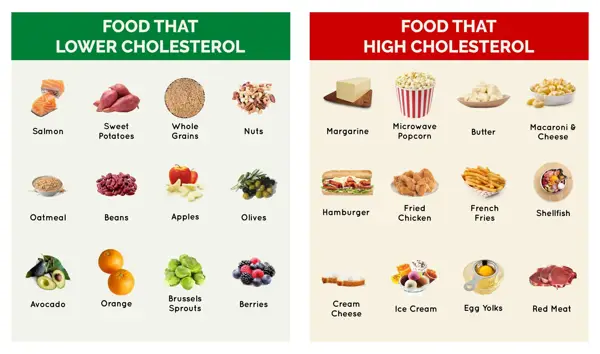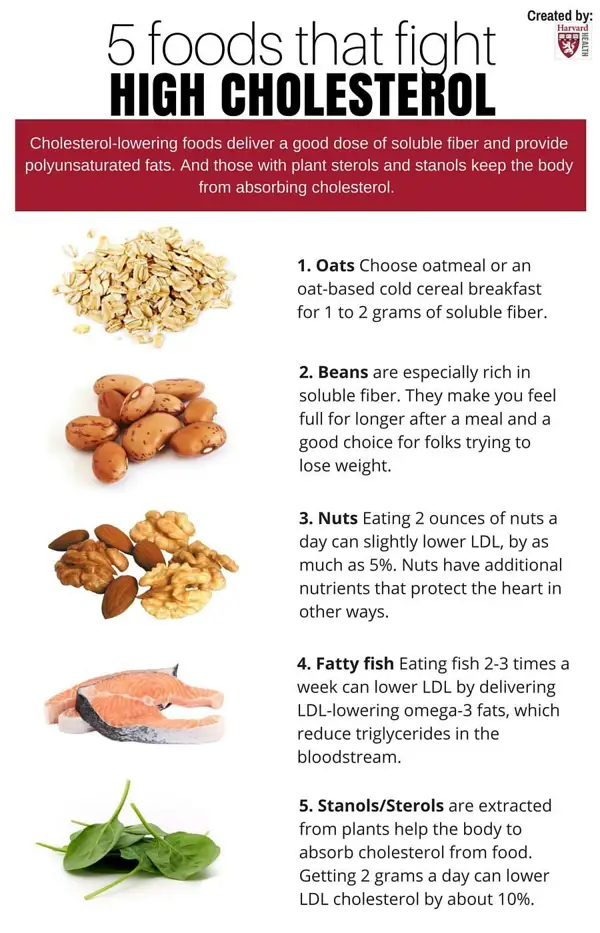Table of Contents
- Introduction
- How Quickly Does Diet Affect Cholesterol Levels?
- Foods That Can Help Lower Cholesterol
- Foods That Can Raise Cholesterol
- The Role of Exercise in Managing Cholesterol
- When to Consider Medication for High Cholesterol
- Prevention and Maintenance Tips
Introduction
Cholesterol is a waxy substance that can be found in the cells of your body. While some cholesterol is necessary for proper bodily function, too much of it can lead to serious health problems such as heart disease and stroke. One of the key factors that can influence your cholesterol levels is your diet.
How Quickly Does Diet Affect Cholesterol Levels?
The impact of diet on cholesterol levels can vary from person to person. In general, making changes to your diet can lead to changes in your cholesterol levels within a few weeks. For example, reducing your intake of saturated fats and trans fats can help lower your LDL (bad) cholesterol levels.
Foods That Can Help Lower Cholesterol
Some foods are known to help lower cholesterol levels, such as fruits, vegetables, whole grains, and foods rich in omega-3 fatty acids. These foods can help increase your HDL (good) cholesterol levels and decrease your LDL cholesterol levels.
Having high cholesterol levels can increase your risk of heart disease and other health issues. Luckily, there are many foods that can help lower cholesterol levels and improve your overall health. Here are some foods to include in your diet:
- Oats and oat bran: These contain soluble fiber, which can help lower LDL cholesterol.
- Fatty fish: Salmon, mackerel, and sardines are rich in omega-3 fatty acids, which can help lower triglycerides and increase HDL cholesterol.
- Nuts: Almonds, walnuts, and other nuts are high in healthy fats and can help lower LDL cholesterol.
- Fruits and vegetables: These are high in antioxidants and fiber, which can help lower cholesterol levels.
- Beans and legumes: These are high in soluble fiber and can help lower LDL cholesterol.
It's important to note that while these foods can help lower cholesterol levels, it's also important to maintain a healthy diet overall. It's also important to exercise regularly and avoid smoking to help lower cholesterol levels.
How quickly your diet can affect your cholesterol levels can vary depending on the individual and the specific foods you are eating. However, making healthy dietary changes can typically start to show positive effects on cholesterol levels within a few weeks to a few months.

Foods That Can Raise Cholesterol
On the other hand, there are certain foods that can raise cholesterol levels, such as processed foods, red meat, and full-fat dairy products. Consuming these foods in excess can lead to an increase in LDL cholesterol levels.
The Role of Exercise in Managing Cholesterol
In addition to diet, regular exercise can also play a significant role in managing cholesterol levels. Physical activity can help raise HDL cholesterol levels and lower LDL cholesterol levels. Aim for at least 30 minutes of moderate exercise most days of the week.
When to Consider Medication for High Cholesterol
If lifestyle changes alone are not enough to manage your cholesterol levels, your doctor may recommend medication. Statins are commonly prescribed to help lower cholesterol levels and reduce the risk of heart disease. Always follow your doctor's advice when it comes to medication.
Prevention and Maintenance Tips
To maintain healthy cholesterol levels, it's important to adopt a balanced diet that includes plenty of fruits, vegetables, whole grains, and lean proteins. Limit your intake of saturated fats and trans fats, and aim to incorporate regular exercise into your routine.
Key Takeaways
- Changes in diet can lead to changes in cholesterol levels within a few weeks.
- Foods that can help lower cholesterol include fruits, vegetables, whole grains, and foods rich in omega-3 fatty acids.
- Avoid processed foods, red meat, and full-fat dairy products to prevent an increase in cholesterol levels.
- Regular exercise can help raise HDL cholesterol levels and lower LDL cholesterol levels.
- Consider medication if lifestyle changes are not enough to manage cholesterol levels.
Frequently Asked Questions
How quickly can I expect to see changes in my cholesterol levels after changing my diet?
The timeframe for seeing changes in cholesterol levels can vary, but most people will notice a difference within a few weeks of making dietary changes.
Are there any specific foods that I should avoid to help lower my cholesterol levels?
Avoiding foods high in saturated fats and trans fats, such as red meat and processed foods, can help lower LDL cholesterol levels.
Is medication the only option for managing high cholesterol levels?
No, lifestyle changes such as diet and exercise are often effective in managing cholesterol levels. However, medication may be necessary in some cases.



Recent Comments